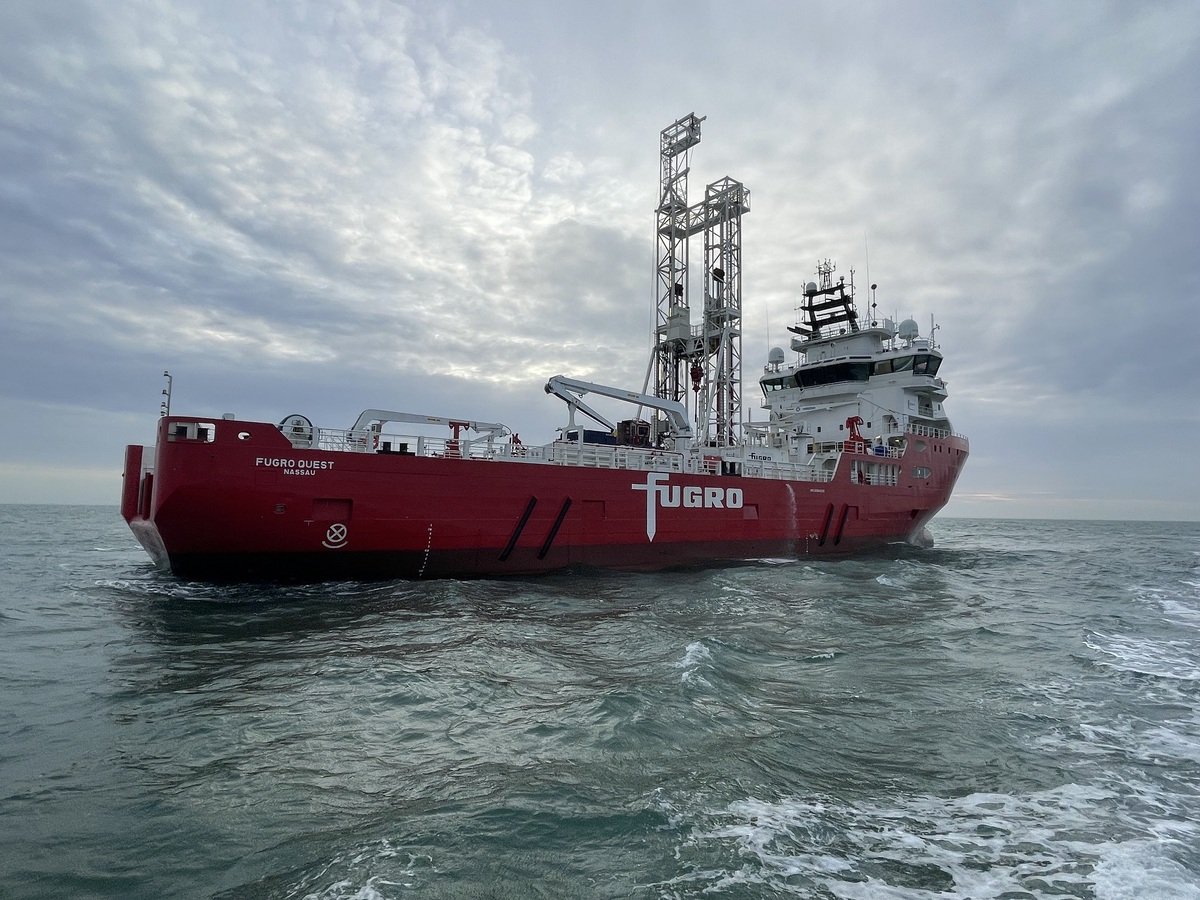How the marine sector is making waves in the fight for a greener future
Sponsored by FugroTo break the climate crisis, we need to look to the oceans – and the organisations who work there are best placed to help

The climate crisis wasn’t caused by a single catastrophic event. We owe its continuing advance to millions of interconnected causes that have damaged every ecosystem on the planet – whether land, sea or air.
The route to effectively tackling that crisis will mean addressing a similarly multitudinous span of pressure points across the world’s economy. And a successful transition to Net Zero will naturally require the close involvement of organisations who already monitor our planet’s health: they already have a better understanding of it; and, even more, a crucial role to play in modelling a greener future world.
The marine sector is one industry that will be critical in determining the wellbeing of the planet. So much of the fight for a greener future is happening in the oceans. For starters, they are the most significant carbon absorber: covering nearly three-quarters of the earth’s surface, they draw in a third of global carbon emissions and absorb 70 per cent of the warming caused by excess greenhouse gases.
The oceans also play host to thousands of wind turbines, as energy companies look to generate gigawatts of clean power to meet global Net Zero targets. But they are complex spaces to design solutions for. By their very nature they are demanding, hard-to-access environments, and as a result, we know surprisingly little about them: we know more about the surface of the Moon than we do about the ocean floor.
Yet progress is being made – not just to develop safe, sustainable ways to survey the subsea areas, but understanding geo-risk (or uncertainty) to create more sustainable and effective project outcomes and joined-up approaches between businesses to save our seas and advance the energy transition.
Fugro is one of the world’s leading geo-data specialists. In this series of articles, we explore the work it is doing to develop both remote and autonomous technologies to survey the oceans, and the infrastructure being developed in and near them: remote uncrewed vessels, for instance, or the use of green methanol as an emission-free fuel alternative to petroleum-powered vessels.
We also look at the importance Fugro places on the development of collaborative relationships between the public and private sector, and between businesses, regulators and governments – sharing data, research and technology and encouraging others with a stake in the oceans to do the same. As its Global Climate Solutions Lead, Dr Pooja Mahapatra, says, only by mobilising businesses to think more about what role they can play in tackling the climate crisis – and work together for the greater good – can progress towards Net Zero be made.
You can find out more about how Fugro is taking the fight to climate change below:
Episode 1
Dr Pooja Mahapatra, Global Climate Solutions Lead, Fugro
Individuals are an important part of the equation when it comes to tackling the climate crisis – but they’re not the only one. What’s needed most of all, according to a united front of experts, is transformation in how our societies, economies and leadership function. Dr Pooja Mahapatra, Global Climate Solutions Lead at Fugro, discusses the importance of collaboration between and with businesses, and the sharing of data, research and innovations in Net Zero.
Episode 2
Daniel Jones, Director of Inspection and Maintenance, Fugro
The oceans cover nearly three-quarters of the earth’s surface, draw in a third of global carbon emissions and absorb 70 per cent of the warming caused by excess greenhouse gases. They are also where some of the most exciting innovations in technology for combating climate change are happening. Daniel Jones, Director of Inspection and Maintenance at Fugro, explains the progress the company has made on developing technologies to minimise the harm caused by exploration of the oceans and their abundant natural resources.
Episode 3
Rod Eddies, Solutions Director Land Site Characterisation, Fugro
Major infrastructure projects can fail to meet cost and schedule expectations for all sorts of reasons. Contractors go bust; natural disasters strike; broader political circumstances become unfavourable to the project’s aims.
But even if they don’t fail outright, a great proportion of them struggle to meet their targets. In the energy sector, 90 per cent of projects run over budget. And while coverage of this tends to focus on the headline issues – namely, political and economic instability – less attention goes to an area that has proven time and again to be a headache for investors, engineers and all manner of stakeholders: geo-risk.
We spoke to Rod Eddies, Solutions Director Land Site Characterisation at Fugro, to understand more about geo-risk, and what solutions the company offers to organisations looking to reduce uncertainty and achieve more sustainable outcomes.
Episode 4
Peter Toxopeüs, Fleet Development Manager, Fugro

Business Reporter Team
You may also like
Most Viewed
Winston House, 3rd Floor, Units 306-309, 2-4 Dollis Park, London, N3 1HF
23-29 Hendon Lane, London, N3 1RT
020 8349 4363
© 2025, Lyonsdown Limited. Business Reporter® is a registered trademark of Lyonsdown Ltd. VAT registration number: 830519543





